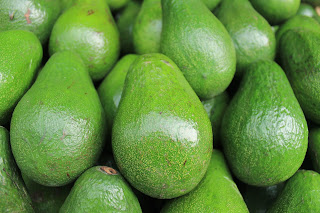Millennials are killing avocado toast
These avocados think they're so special.
I didn't mention the avocado toast debacle when it happened a few weeks ago - it just seemed like another rehash of the old Latte Factor argument, with the added insult-to-injury of having personal finance advice shoved down your throat by a Little Lord Fauntleroy who inherited all his money and never had to choose between nice food and real estate in all his life; truths underscored by his Lucille Bluthian understanding of the value of a dollar ("How much could avocado toast cost? $22?")
As with the Latte Factor, there's a grain of good advice, but you have to peel back several layers to find it. But you don't make headlines by saying something vague and general, like, "Make sure you keep your big goals in mind, and don't fritter away your money on things that don't really matter to you in the grand scheme." Instead, you evoke outrage by making a swipe at Millennials, and by presuming to tell us what our values are or should be. We must value home ownership. We must not value healthful, delicious fruits.
Lots of articles presume to tell Millennials what our values should be - specifically, how to spend our money. It's always super contradictory. Recently a friend-of-a-friend on Facebook made a good point by contrasting the infamous avocado toast article with a fluff piece decrying Millennials for the demise of the "casual dining" industry. It seems Millennials just aren't eating at Applebee's enough. So which is it: we're eating out too much, or not enough?
It's a tired trope that Millennials get blamed for everything in fluff pieces, but the ones that criticize our spending habits are particularly ludicrous. We don't save enough; we don't spend enough; we don't spend on the right things. The "right things" are different in each article. It's become a meme that Millennials are killing" various industries by not spending enough dollars on just about everything you could think of from houses ("the American dream") to paper napkins.
Millennial-blaming is such an overdone rhetorical move that it's become almost easier to find an article making fun of it than one honestly doing it, but it's still a pervasive trope, and the fact that it took hold so easily - to the point of becoming cliche - speaks to a lot of bizarre assumptions about the duties of people - specifically young people - to industry.
Here's what I'd like the millennial-blaming champions of industry to consider:
Do businesses exist to serve people, or do people exist to serve businesses? Why is it the responsibility of the consumer to prop up industry, not the responsibility of the industry to meet the needs of the consumer?
Why is it only that way when the consumers are Millennials?
What factors, aside from pure Millennial stubbornness, might cause people's spending habits to change over generations/time? Consider: availability of disposable income (how are wages now compared to the 1970s? how are education costs?) Consider: relative prices compared to the past. (How much did homes used to cost, and how much do they cost now?) Consider: technology advances. (Can you really expect people to go shopping at Macy's when they have Amazon?) Consider: awareness of global climate change. (We should be using fewer paper napkins, dammit.) Consider: the actual shittiness of the thing stubbornly not being purchased. (Come on: Would you voluntarily go to Applebee's?)
Who are Millennials, even? Who is and is not a Millennial? How might this definition be altered to make any kind of damn point you want?
What happens when a new business comes along and does better than an existing business? Who is "to blame" for the failure of the old business?
What is the value of saving an industry nobody wants?
What even is the point of capitalism?
Is not an avocado delicious, though?


Comments
Post a Comment